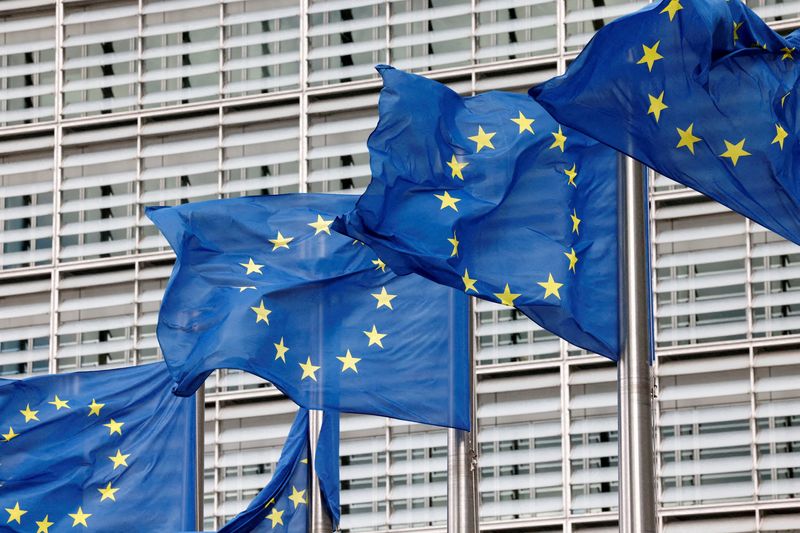By Kate Abnett
BRUSSELS (Reuters) -The European Union is hoping to reach a deal late on Monday to impose a carbon dioxide tariff on imports of polluting goods such as steel and cement, a scheme the bloc says is crucial to support European industry during the low-carbon transition.
The EU last year proposed a law to impose CO2 emissions costs from 2026 on imports of steel, cement, fertilisers, aluminium and electricity, to prevent domestic industry from being undercut by cheaper goods made in countries with weaker environmental rules.
Negotiators from EU countries and the European Parliament aim to strike a deal on the world-first law on Tuesday evening - after which, both sides would need to formally rubber stamp it.
"This text is another world first and a sign of the unprecedented acceleration of the green deal in Europe," said Pascal Canfin, chair of the EU Parliament's environment committee.
Negotiators will wrangle over whether to extend the levy to cover organic chemicals, hydrogen and plastics, as EU lawmakers want, and whether the scheme will apply from 2026 or 2027.
The EU scheme would require companies importing goods into Europe to buy certificates to cover the CO2 emissions embedded in those products. The aim is to create a level playing field between overseas firms and domestic EU industries, who must buy permits from the EU carbon market when they pollute.
The EU levy has faced criticism from countries including China, although Brussels has said countries could be exempted if they have a domestic CO2 price akin to the EU's, or similar climate change targets.
EU climate policy chief Frans Timmermans said in September the United States may avoid the levy on that basis.
The tariff is part of a package of EU policies designed to help the world avoid disastrous climate change by cutting EU emissions 55% by 2030 from 1990 levels.

Separate EU negotiations later this week will seek a deal on the centrepiece of that package - a reform of the EU carbon market.
Those talks also decide how quickly EU industries will lose the free CO2 permits they receive to shield them from overseas competition - which Brussels says must be phased out when its carbon border tariff is phased in, to comply with World Trade Organisation rules.